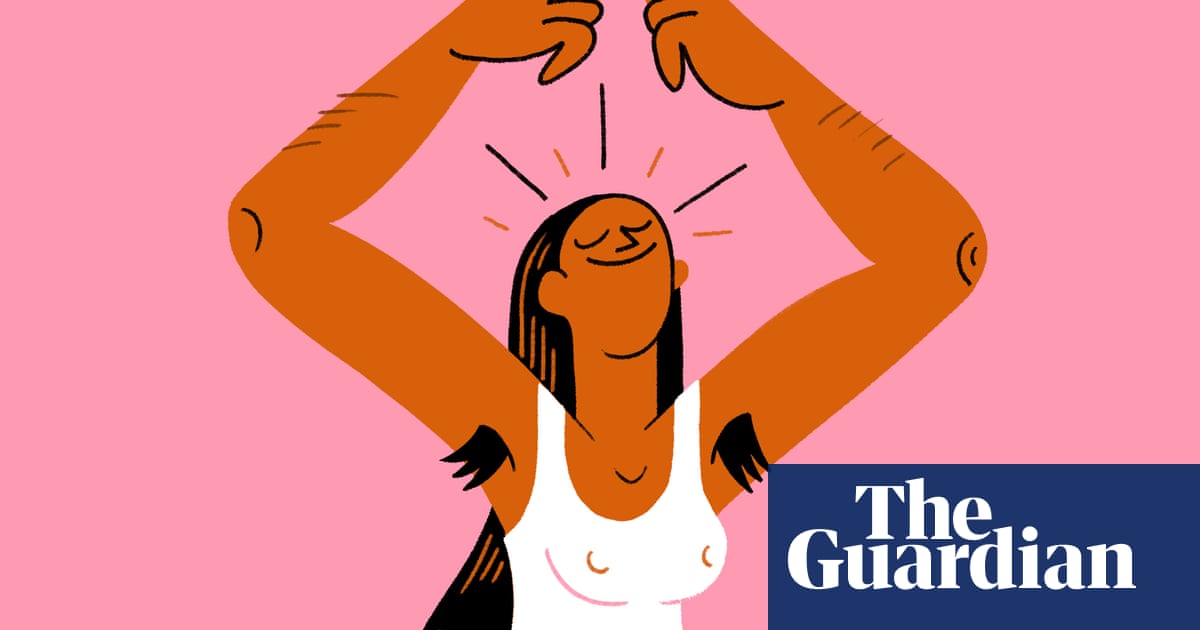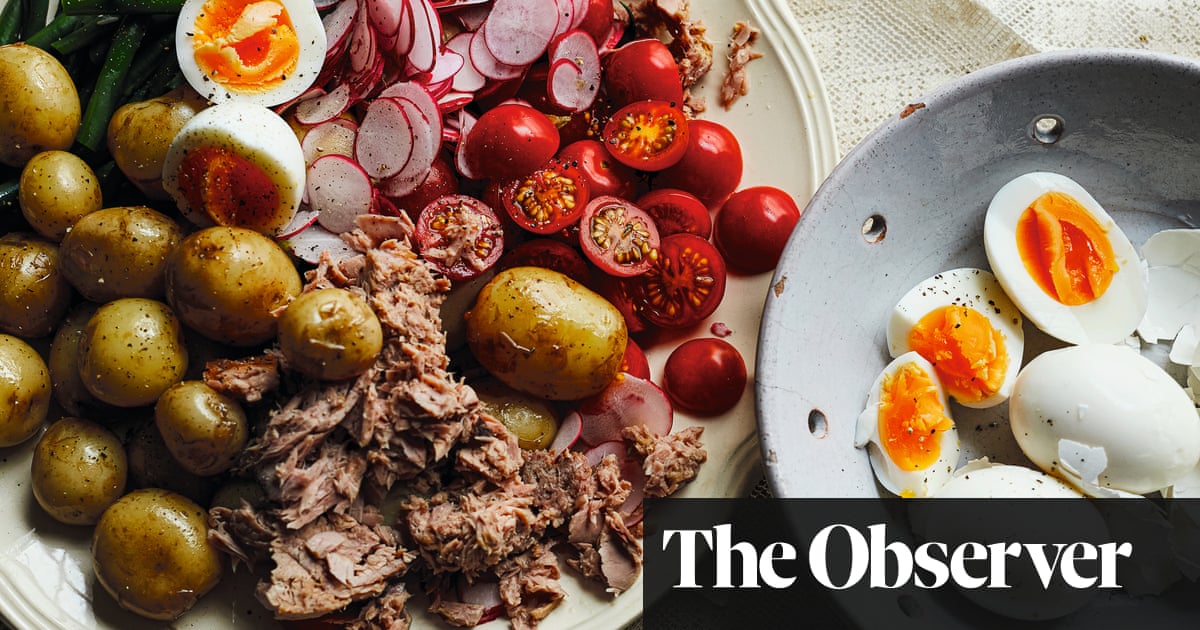
Leah Williamson pauses and looks around at the girls kitted out in their green Newport Pagnell kit. “I’m 27 now: when I was their age, I didn’t have a girls’ team to join,” she says. “You go back another however many years to when my mum was playing and she had to cut her hair and pretend to be a boy.
“We’ve just come so far and I’m happy that I get to watch it and be part of it in that way. It drives me to keep playing and be part of the team.”
The Arsenal defender is back where it all started to open the Leah Williamson Pitch, a new 3G floodlit facility that is one of 15 sites to receive Lionesses Futures Fund grants.
It is part of a £25m investment from the government plus £5m from the Football Association to provide women and girls with high-quality facilities that give them priority access. With 68,000 more girls playing football since the Lionesses’ historic Euro 2022 win, facilities have been struggling to cope with demand.
The large group of girls grin and look at each other when the mayor of the town, Paul Day, tells them the next England captain could be among them. Afterwards he jokes to the current captain, the Newport Pagnell‑born Williamson, that they are coming for her job. “They should be better than me, look at what they’ve got,” says Williamson. “I’m not kidding when I say I took my mum to the airport this morning and she said: ‘Funny, isn’t it. We used to drive there at six o’clock in the morning for you to do your sessions before school.’ I’d completely forgotten.
“We used to drive here, it was dark, and she’d switch on the headlights to light up enough of the pitch for me to run. It’s just crazy to see my name up there now. I say it’s my name up there but it’s the Lionesses, that’s the most important thing, and it’s nice when all these girls probably go to the school I went to.”
The effect of access to good‑quality facilities that expect you, that welcome you and are ready for you, really matters. “Until this becomes totally normal, girls need to be shown a bit of love, TLC, when it comes to their journey in football,” Williamson says. “We can’t just chuck them in the deep end and expect them to swim.
“Boys go to football because that’s where their social group goes, girls normally have to step outside of their social group to go and join the football team. Until that shifts, if you’re asking a girl to step outside of her comfort zone to follow her passion then I want her to feel safe when she does so.”
Robert Sullivan, chief executive of the Football Foundation which is a charity of the Premier League, the FA and the government, explains there has been a rapid change in the demographics of who is playing the game and it has had to act quickly so “the money we invest, the pitches we put down and the facilities we create, are doing the job that we need to support the growth of women and girls football”.
Pitches such as this can have a huge impact on local communities far beyond that on the women and girls who use them. “Because we know the community is using it, the number of women and girls, the number of people of a certain age, you can work out that there is a public health benefit and an individual health benefit to it,” Sullivan says. “There’s also the economic benefit, which to a club like Newport Pagnell, getting more people through the door, more parents through the door, secondary-spend benefits, and all those kind of things, has a real valuable impact to the community.”
Next up for Williamson is Champions League qualifiers then a tasty Women’s Super League opening fixture at the Emirates Stadium, against Manchester City, the new club of Arsenal’s record goalscorer, Vivianne Miedema. Having spent six years playing against the forward in training, surely Williamson knows better than most how to stop her? “Yeah, and if anyone knows how to get past us, it’ll be her, right?” she says, with a laugh.
“I hope the fans give her the welcome that she deserves. I can’t wait. It’s going to be a very, very competitive match and why not start the season that way?”
Williamson has, for once, had a quieter summer than normal with Team GB missing out on the Olympic Games. The USA women’s national team, managed by a familiar face in Emma Hayes, won gold in Paris. “It’s funny, I’ve grown up as a rival to her my whole professional career and then she just goes to the next [big rivalry, England v USA],” says Williamson with a wry smile. “I think she’ll get a fantastic reception when she comes back [to play England in a friendly at Wembley in November], which adds a little bit of spice to a game. They’re on fire. I’m relishing that game.”
England have the luxury of some high-profile and carefully selected friendlies as they build towards a defence of their European title at the finals next year in Switzerland. “We now have the exact same preparation we had before 2022, in terms of picking and choosing who we play and when we play, to get the most out of ourselves,” she says. “It was also important to prove to ourselves. It’s nice to go in with a bit of confidence, knowing that we did qualify first time out, we did take care of business when we could.”
Seeing the tangible benefits the success of the Lionesses is having is making a huge impression on Williamson and her teammates. Legacy is important to them all, but they cannot do it alone. “I didn’t come up with a blueprint for this project, the Football Foundation did, and we’re reliant on people that are in power having the ideas and the desire to do it,” she says.
“The greatest superpower I have is just being visible as a female footballer and going out every single week and doing my job because it demonstrates there is a job to do.
“When we went into those Euros leaving a legacy was the least we’d ever spoken about because we were so focused on winning. Then winning helps create the biggest change we could make and has the biggest impact on the legacy that we leave behind as a team.”












